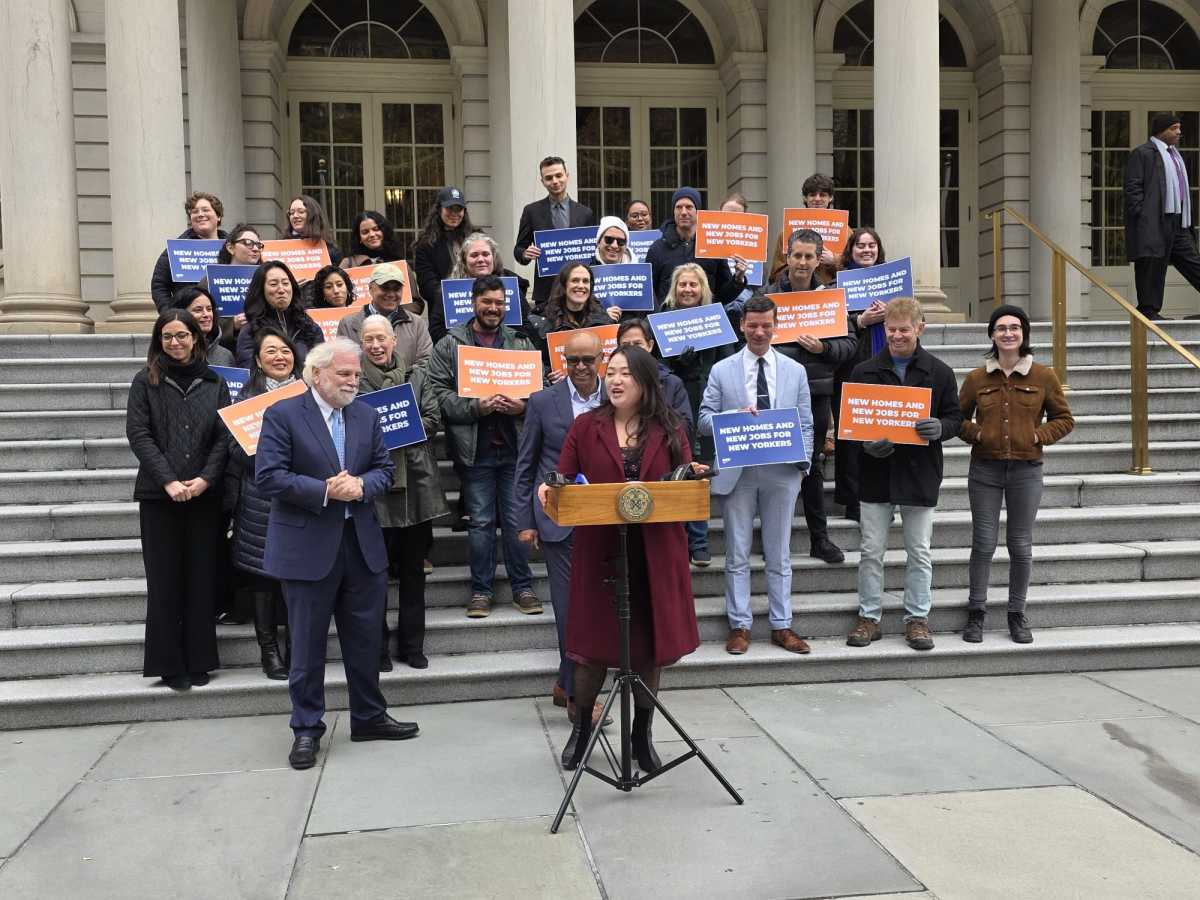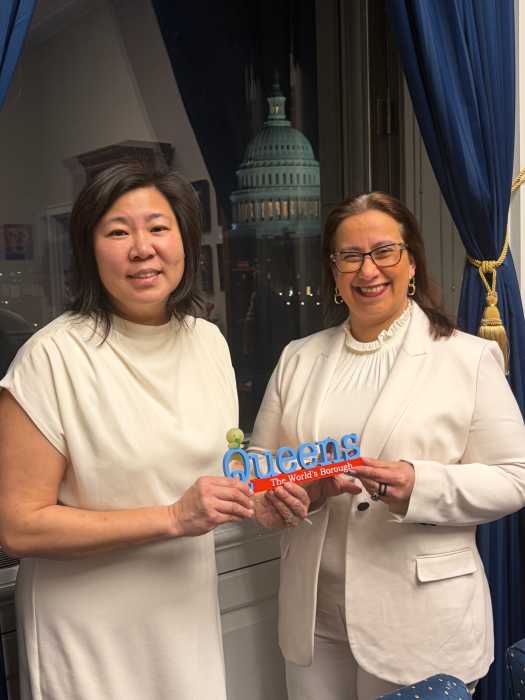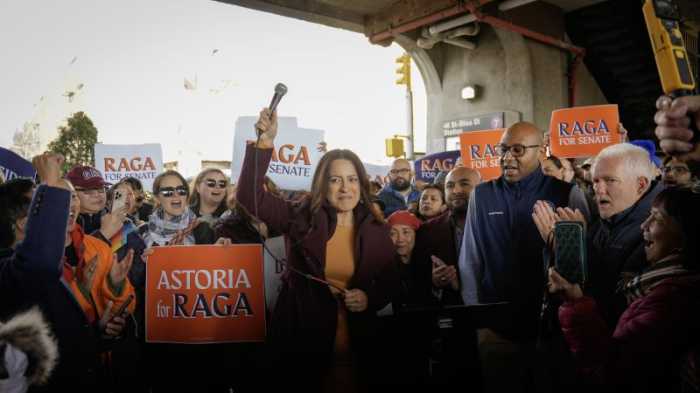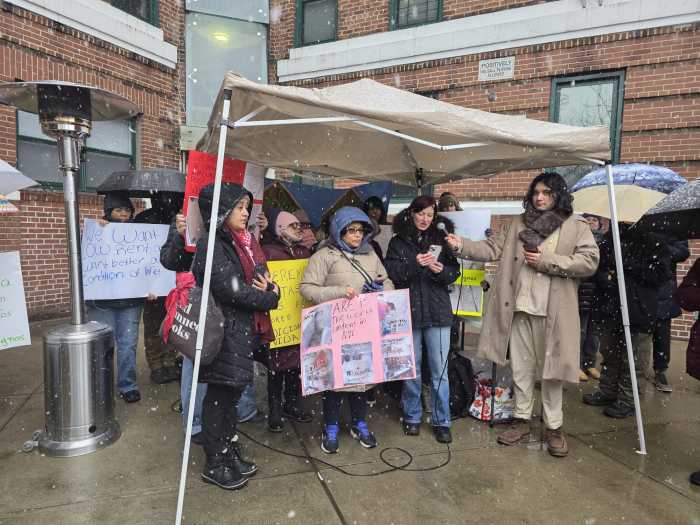The City Council unanimously voted Wednesday to approve the OneLIC Neighborhood Plan, which will rezone more than 50 blocks in the neighborhood to create up to 14,700 new homes, 4,300 of which would be permanently affordable.
The City Council voted 45-0 in favor of the massive rezoning at a stated meeting Wednesday afternoon as part of the final hurdle of the city’s Uniform Land Use Review Procedure (ULURP).
The Council’s Subcommittee on Zoning and Franchises and Committee on Land Use each voted unanimously in favor of the neighborhood plan on Oct. 29 after Council Member Julie Won announced that she had secured $1.97 billion in commitments from the city during last-minute negotiations.
Won, who represents the area covered by the rezoning, announced on Nov. 12 that developers had committed a further $100 million toward public amenities such as arts and culture spaces in the rezoning area.
Speaking at a press conference alongside First Deputy Mayor Randy Mastro and Deputy Mayor for Housing Adolfo Carrión Jr. shortly before the Council voted Wednesday afternoon, Won said OneLIC had succeeded where four other attempts to rezone the neighborhood had failed due to the extensive public engagement that has been carried out over the past two years.
She pointed to 21 large public forums and 14,000 mailers among several other public engagement initiatives, adding that the OneLIC Neighborhood Plan “does right” by the local community.
OneLIC, proposed by the Department of City Planning and the Adams Administration, covers 54 full or partial blocks in Long Island City and would add around 14,700 homes to the neighborhood, 4,300 of which would be affordable.
DCP said the ambitious rezoning aimed to revise outdated zoning regulations to all for mixed-use development, creating 14,4000 new jobs for the neighborhood alongside over 3.5 million square feet of commercial and industrial space.
However, Won had consistently voiced her opposition to the plan put forward by the City Planning Commission in September, stating that the plan did not go “far enough” for the local community.
She announced on Oct. 29 that she had secured $1.97 billion in city commitments after lengthy negotiations with the Adams Administration, including “iron-clad” commitments to 1,300 new school seats, upgrades to the neighborhood’s sewage and plumbing infrastructure and around 15 acres of open space, which includes a fully connected waterfront from Gantry Plaza State Park to Queensbridge Park.
The OneLIC plan now also includes a $206 million investment in Queensbridge Houses to upgrade community facilities, address chronic plumbing issues and bring vacant units back online.
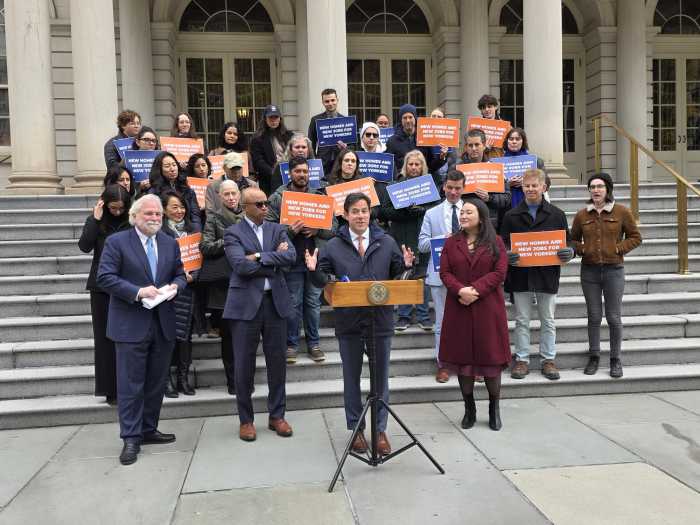
All private developments in the rezoning area will be mapped under Mandatory Inclusionary Housing’s Option 1 or 3. Option 1 requires that 25% of a development be available at an average of 60% of the Area Median Income (AMI) with at least 10% of units set aside for households earning 40% AMI, while Option 3 mandates that 20% of a development are affordable targeting an average of 40% AMI.
Won said LIC is one of the the fastest-growing neighborhoods in the city but said infrastructure has struggled to keep up with that growth. She said the city’s commitments help to address that shortfall.
“We have struggled with shortages of school seats. We have struggled with flooding and sewage issues. We have struggled with lack of green space and so much more,” Won said Wednesday. “But over the last two years… we have been able to come together with a plan.”
Pointing to the extensive public engagement that helped shape OneLIC, Won referenced to a “contentious” special hearing at LaGuardia Community College on May 21, when more than 200 community members gave testimony about the plan, including a significant number of people who spoke out against OneLIC or raised concerns about the rezoning.
She said such community feedback was crucial in securing a historic level of investment, noting that the $1.97 billion in city commitments dwarfs the $413 million secured during negotiations for the Jamaica Neighborhood Plan, which received unanimous Council approval last month.
OneLIC now stands as the largest neighborhood-specific rezoning plan approved in New York City over the past 25 years. Won added that the city will now be working with local stakeholders to establish a community oversight committee to track the implementation of the city’s commitments.
“We will make sure that we hold ourselves accountable,” Won said. “We will make sure that everything that was promised becomes a reality.”
Mastro described the Council vote as a “very proud day,” stating that the Adams Administration has now successfully overseen the passage of neighborhood rezonings in Midtown South, Jamaica, Long Island City and Brooklyn’s Atlantic Avenue.
He said OneLIC, along with other neighborhood rezonings offer an example of ideal collaboration between City Hall and City Council.
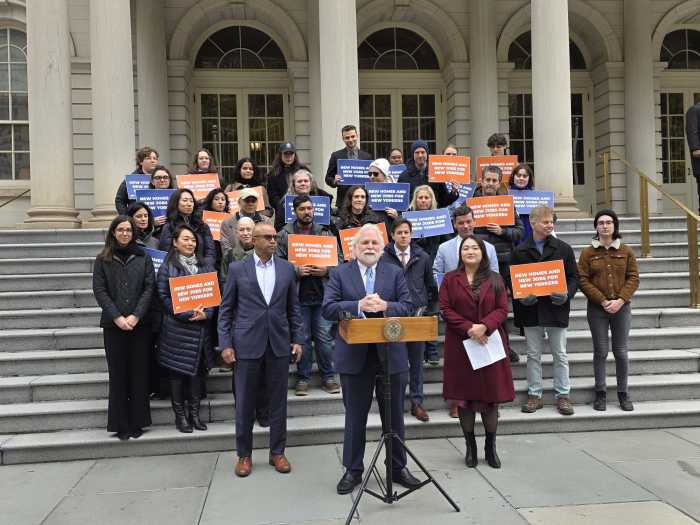
Mastro also touted recent changes to the City Charter, which will expedite certain affordable housing projects by removing the City Council from the ULURP process. He said the changes go “hand-in-hand” with the city’s commitment to building more affordable housing by enabling the city to advance projects faster than it did in the past.
“That will create a lot more affordable housing in our city, and now we’re able to do it even faster,” Mastro said. “That’s a great thing for New York.”
But Won said she is concerned that the changes will remove council member’s ability to negotiate for community priorities during future affordable housing projects.

